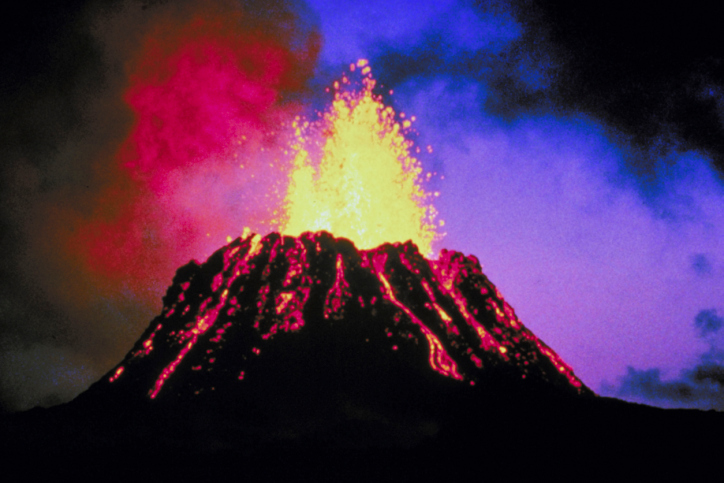Many scientists have either adopted the extreme “alarmist” or the extreme “denialist” view of human-caused global warming, but both are incorrect.
The majority of scientists, most of whom are independent of the United Nations’ Intergovernmental Panel on Climate Change (IPCC), espouse views representing a balanced summary of the available scientific information.
Such a view neither inflates nor underestimates the risk of human-caused change, while properly accounting for the severe risks of natural climate events as part of the our planet’s myriad natural hazards. Hazards such as earthquakes and volcanic eruptions are unpredictable and unstoppable. Our climate defense strategy should be to prepare for and adapt to disasters when and if they occur.
As I and other scientists have regularly pointed out in response to alarmists’ claim only humans could be causing ongoing climate changes, the climate changes naturally all the time.
Human activities undoubtedly affect local climates. For instance, human activity in the vicinity of cities has been shown to cause warming, and locations near large areas of human-altered land has led to either cooling or warming, depending upon the changed albedo. Therefore, humans must have some effect on global climate as well.
Despite this, no one has yet been able to identify a unique human signal for large scale, global climate changes, as distinct from natural variations within a climate system. In an earlier paper I co-authored with climate scientist Richard Lindzen, environmental scientist Chris de Freitas, and engineers David Holland and Indur Goklany, we reported, “Atmospheric carbon dioxide is indeed a greenhouse gas, but the empirical evidence shows that the warming effect of its increase at the rates of modern industrial emission and accumulation is minor, given an assumed pre-industrial level of about 280 [parts per million] and noting the established logarithmic relationship between gas concentration increases and warming.”
Since that paper was published in 2007, evidence has continued to mount that human greenhouse gas emissions have, at best, an infinitesimal influence on global temperature and climate, which is evidenced by the fact that global satellites and weather balloons have measured no warming for more than 18 years now. This is completely contrary to climate model predictions made by alarmists that indicate global temperature should rise along with increased carbon dioxide levels.
Even if humans are contributing to a relatively minor warming of the planet, there is little evidence that such a warming would be dangerous. As the Non-Governmental International Panel on Climate Change’s Climate Change Reconsidered II: Physical Science, of which I was a lead author, reports, “Though a future warming of 2°C would cause geographically varied ecological responses, no evidence exists that those changes would be net harmful to the global environment or to human well-being.”
At the current level of ~400 parts per million, we live in a carbon-dioxide-starved world; carbon dioxide levels were 15 times higher during the Cambrian Period with no known harmful effects. As is widely recognized by agronomists and greenhouse operators, carbon dioxide is a vital nutrient used by plants in photosynthesis. The increase of carbon dioxide “greens” the planet and helps feed the growing human population.
Regardless of human activity, it is certain natural climate change will continue, and the appropriate public policy response to this is to monitor climate accurately in an ongoing way and respond and adapt to any changes—warming or cooling—in the same way that we cope with other natural events, such as droughts, cyclones, earthquakes, or volcanic eruptions.
I counsel prudence in dealing with the uncertainties of climate change. Reducing the world’s vulnerability to today’s climate sensitive problems requires continued economic progress. We must build the world’s wealth and adopt new technologies in energy industries, flood control food production, and in emergency management when and where they make sense. Building the capacity to adapt to a changing climate will help people cope with future challenges from climate change, regardless of the cause.
Stopping climate change, however, is not an option, and attempts to do so made with the assumption human carbon dioxide emissions are causing it are misguided and an expensive waste of time, effort, and resources.
Other Scientists Agree
Similar views have been espoused by various experts and groups, including in an open letter signed by 125 researchers written to the secretary general of the United Nations in 2012; by the 650 scientists listed in a 2009 U.S. Senate report; and by the authors of the two recent Nongovernmental International Panel on Climate Change volumes of Climate Change Reconsidered, published by The Heartland Institute, which publishes Environment & Climate News.
The world is stuck with the IPCC for at least a little longer, as well as innumerable national greenhouse offices, ministries of climate change, state greenhouse offices, specialist climate change sections within government departments, bureaus of meteorology, national and international science organizations with climate alarmist views, and an untold number of other climate change research groups, organizations, and lobbyists.
What it does not seem to be stuck with, however, is measurable human-caused global warming.
Robert M. Carter, Ph.D. ([email protected]) is a paleontologist, stratigrapher, marine geologist, and environmental scientist. This article was modified and updated from a review article in World Economics (2007) and the book Climate: the Counter Consensus (2010).
Internet Info
U.S. Senate Minority Staff, “U.S. Senate Minority Report: More Than 650 International Scientists Dissent Over Man-Made Global Warming Claims; Scientists Continue to Debunk ‘Consensus’ in 2008,” December 11, 2008: https://heartland.org/policy-documents/u-s-senate-minority-report-more-650-international-scientists-dissent-over-man-made-
Nongovernmental International Panel on Climate Change, Climate Change Reconsidered: Physical Science, 2013: https://heartland.org/media-library/pdfs/CCR-II/CCR-II-Full.pdf





